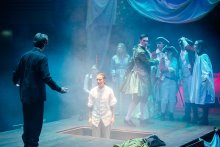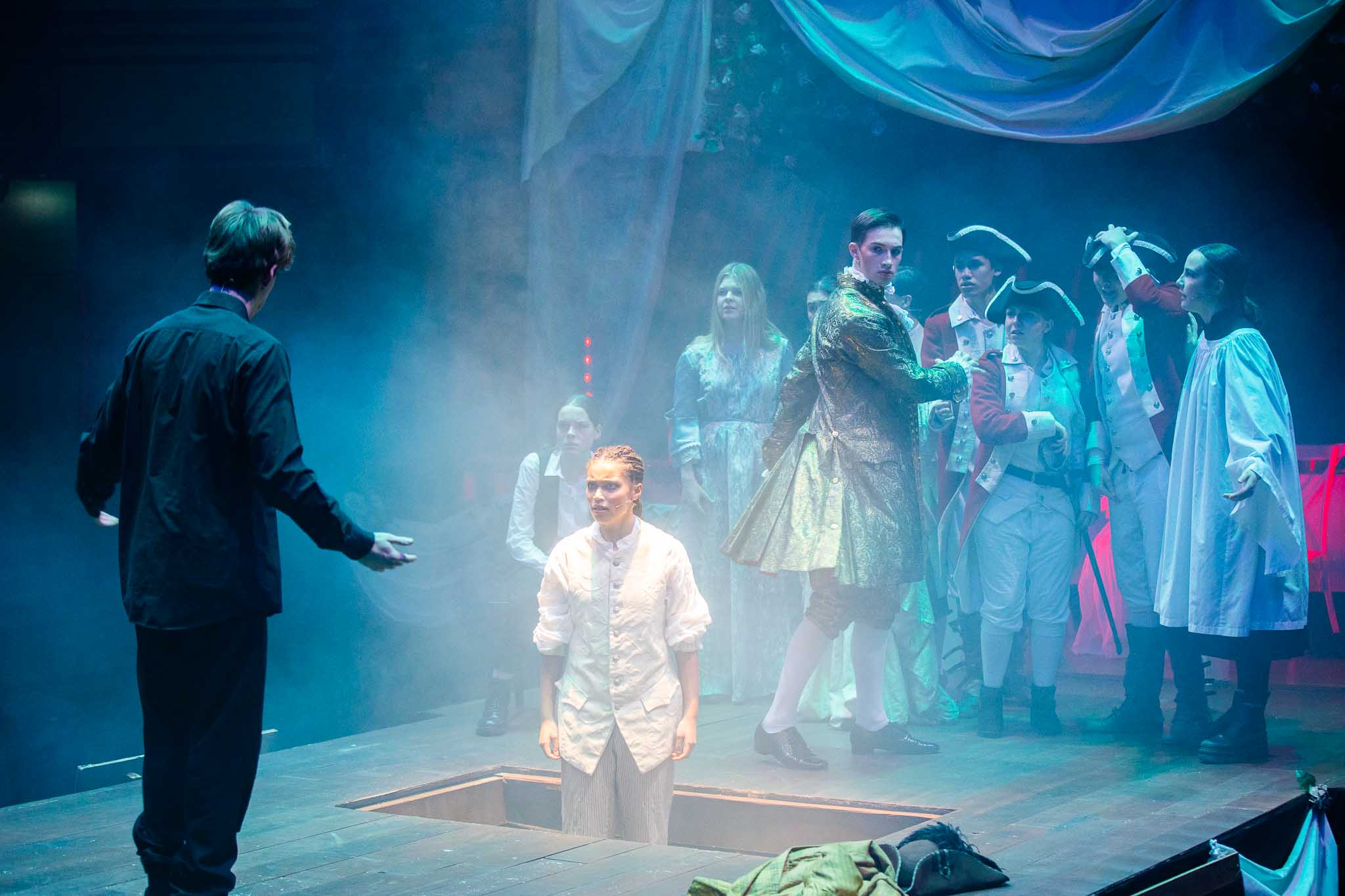






Last week, Nick Limm, who joined the Drama Department this year from Shakespeare’s Globe, led a series of dynamic Shakespeare workshops with our Year 12 Drama students.
Drawing on his professional experience in Shakespearean theatre, Mr Limm worked intensively with students to explore voice, movement, and text, preparing them for next year’s performances of The Winter’s Tale and Richard III. These sessions offered our students the chance to approach Shakespeare not just as readers or exam candidates, but as interpreters and performers, bringing complex characters and timeless themes to life on stage. This work builds on the department’s focus on Shakespeare, which features regularly across the curriculum.
Drama is central to our curriculum and our culture. Our Upper School presents a Shakespeare production every two years—this year’s powerful staging of Hamlet showcased the depth and talent of our senior drama students. Meanwhile, our Year 13 cohort recently adapted Othello and Macbeth as part of their final performance assessments, bringing bold, modern interpretations to classic texts.
Shakespeare matters not only because of his historical significance, but because his works continue to challenge, inspire, and connect with students in meaningful ways throughout their educational journey. For young people today, it is equally important to view Shakespeare through a contemporary lens as it is to enjoy it as it would have been enjoyed in the 16th Century.
From Year 8’sencounters with the prologue of Romeo and Juliet, to Year 13’s adaptations of Othello and Macbeth in Drama and their study of Hamlet for A Level or Antony and Cleopatra at GCSE, Shakespeare remains a consistent thread throughout our curriculum alongside authors from across the literary canon and contemporary authors who provide huge value in helping us interpret modern times.
Earlier this year, our Upper School drama students delivered a powerful production of Hamlet, and our curriculum continues to incorporate plays such as Henry V, taught alongside modern conflict poetry and Ukrainian writers to encourage global, multifaceted perspectives on power, leadership, and conflict.
Following a curriculum review in 2018, we reaffirmed Shakespeare’s relevance, not because of tradition alone, but because his works offer rich opportunities for analysis, empathy, and creativity. Alongside writers like Chaucer, Milton, Dickens, and a wide range of contemporary and global voices, Shakespeare helps shape a curriculum that is intellectually ambitious and culturally diverse.
Alleyn’s is proud to nurture the next generation of performers, thinkers, and writers, young people who, in the spirit of our founder, learn to understand the world through words, and who make those words their own.
